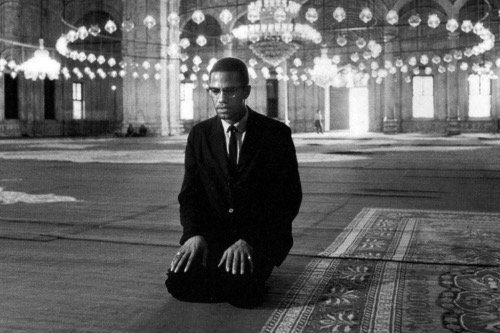“Lucky No.7“ An Ode to Malcolm X
Lucky No.7 Ode to Malcom x
2020
Ryan Cosbert
“You can’t separate peace from freedom because no one can be at peace unless he has his freedom.”
Ever since I was a child, I’ve admired Malcolm X. I’ve always been a curious, pro-Black person—one of those kids who’d get hooked on a subject and go digging for answers on my own (some things never change). After a Black History Month unit at school, I decided to learn more about Malcolm, and from that moment, he became one of the most influential figures in my life. Every time I revisit his story, I uncover something new—something deeper.
Today, May 19, 2025, Malcolm X would have turned 100 years old.
Here’s to the great & noble Malcolm X. May his story continue to live on.
The Early Spark: Pressure That Made a Diamond
Malcolm X was the seventh child of Earl and Louise Little—both active supporters of Marcus Garvey’s Universal Negro Improvement Association (UNIA). Activism was in his blood. When Malcolm was just six, his father died under suspicious circumstances—allegedly hit by a streetcar, though many believed it was a racially motivated killing. His mother was left to raise their children alone, often scavenging for food. By 1939, after a mental health crisis, she was institutionalized, and Malcolm and his siblings were sent into foster care.
Despite a difficult start, Malcolm was brilliant in school. But after a Caucasian teacher told him he should give up his dream of becoming a lawyer and pursue carpentry instead, his interest in school waned. I like to believe that even at that age, Malcolm knew he was destined for more—and that moment sparked something powerful in him.
His teen years were complicated. Living with his half-sister in Roxbury, Boston, Malcolm became involved in petty crime, eventually landing in prison. But this chapter wasn’t an ending—it was a turning point. While incarcerated from 1946 to 1952, Malcolm transformed himself. He quit smoking and gambling, followed the dietary laws of the Nation of Islam, and spent countless hours reading. He even memorized an entire dictionary. That kind of discipline—that hunger for knowledge—makes it clear he was preparing for something much greater.
Becoming Malcolm X
After prison, Malcolm quickly rose through the ranks of the Nation of Islam (NOI). He met Elijah Muhammad in 1952 and began organizing temples in New York, Boston, Philadelphia, and across the South. He founded Muhammad Speaks, the Nation’s newspaper, and developed an unshakable presence in the streets, in homes, and in minds.
He became the Nation’s most visible spokesperson and the head minister of Harlem’s Mosque No. 7 by 1954. His fiery oratory, keen intellect, and uncompromising passion gave voice to the anger and dignity of a people who’d been silenced for too long. He challenged the mainstream civil rights movement, especially Dr. Martin Luther King Jr.’s strategy of nonviolence, insisting instead that Black people had a right to defend themselves “by any means necessary.”
Malcolm redefined what it meant to be Black in America. He helped shift our collective language—from “Negro” and “colored” to “Black” and “Afro-American”—and more importantly, shifted how many of us saw ourselves: powerful, proud, and worthy of autonomy.
Original Mounted Photograph Lithograph by Gordon Parks
"Muslim Prayer with Malcolm X" This photo was taken in 1963
From Nation to Global Vision
By 1963, tensions between Malcolm and Elijah Muhammad deepened. Malcolm wanted the Nation to engage more directly in the civil rights movement. His disillusionment grew when he discovered Muhammad had fathered children with multiple secretaries—violating the moral code they preached.
Their public rift became irreparable after Malcolm’s infamous “chickens coming home to roost” comment in response to JFK’s assassination. Elijah Muhammad silenced Malcolm for 90 days, and by 1964, Malcolm left the Nation for good.
But he didn’t stop evolving. That same year, he founded Muslim Mosque, Inc. and made his pilgrimage to Mecca. It was a second transformation—Malcolm embraced Sunni Islam and took the name el-Hajj Malik el-Shabazz. He returned with a new perspective: the fight wasn’t just for civil rights, but for human rights. He believed orthodox Islam could offer a unifying solution to racial injustice.
Later that year, he founded the Organization of Afro-American Unity (OAAU), seeking to connect the Black American struggle with liberation movements across Africa and the Global South.
The Legacy of a Martyr
Malcolm X was assassinated on February 21, 1965, while delivering a speech at the Audubon Ballroom in Washington Heights. Though three men were convicted, only one confessed. In 2021, two of the accused—Muhammad Aziz and Khalil Islam—were exonerated.
Malcolm was just 39. He was survived by his wife, Betty Shabazz, and their six daughters.
His impact didn’t die with him. His words, his ideas, and his journey have shaped generations. He laid the intellectual and emotional foundation for the Black Power movement and a global push toward liberation, dignity, and self-determination.
This is not just a history lesson for me—it’s personal. Malcolm’s life is a reminder that transformation is possible. That knowledge is power. That speaking the truth, even when it’s dangerous, is necessary.
So here’s to Lucky Number 7.
To Malcolm X.
To the fire that never dies.
Thank you all for reading.
Until next time.
With much love,
Ryan Cosbert

